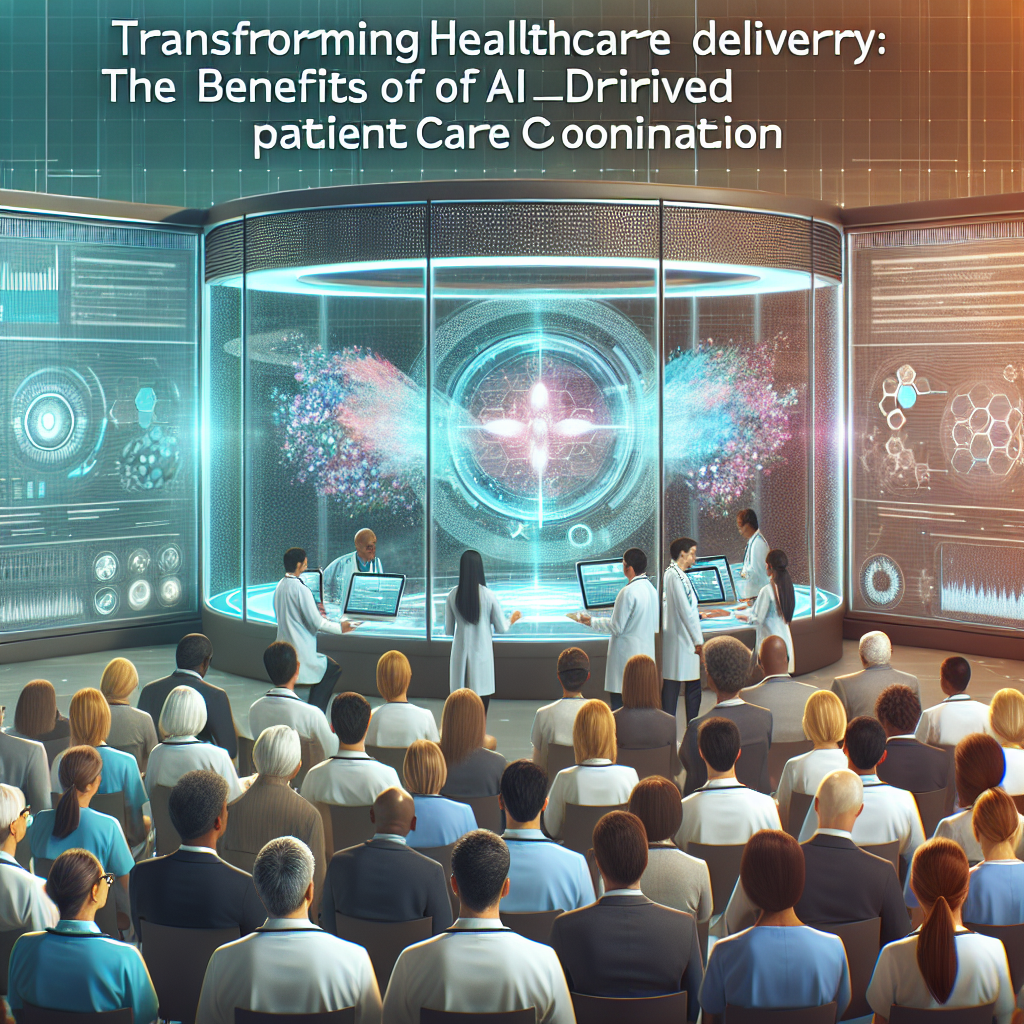In recent years, artificial intelligence (AI) has been transforming various industries, and healthcare is no exception. One area where AI is making a significant impact is patient care coordination. By leveraging AI-driven solutions, healthcare providers can streamline processes, improve patient outcomes, and reduce costs. In this article, we will explore the benefits of AI-driven patient care coordination and how it is revolutionizing healthcare delivery.
The Role of AI in Patient Care Coordination
Patient care coordination involves managing the various aspects of a patient’s treatment across different healthcare providers and settings. This includes communicating information between providers, scheduling appointments, ensuring medication adherence, and monitoring patient progress. Traditionally, this process has been manual and time-consuming, leading to inefficiencies and gaps in care.
AI technologies, such as machine learning algorithms and natural language processing, can automate and optimize many aspects of patient care coordination. By analyzing large volumes of data from electronic health records, wearable devices, and other sources, AI systems can identify patterns, predict outcomes, and generate insights to support clinical decision-making.
AI-driven patient care coordination platforms can also facilitate communication and collaboration among healthcare teams. Providers can exchange real-time information, receive alerts for critical events, and track patient progress more effectively. This streamlines workflows, reduces errors, and ensures that patients receive timely and coordinated care.
The Benefits of AI-Driven Patient Care Coordination
Improved Care Quality
By providing clinicians with timely and relevant information, AI-driven patient care coordination can enhance the quality of care delivered to patients. For example, AI algorithms can flag potential drug interactions, alert providers to changes in vital signs, and recommend personalized treatment plans based on patient data. This helps prevent medical errors, optimize treatment outcomes, and improve patient safety.
Enhanced Patient Experience
AI technologies can also empower patients to take an active role in managing their health. Patients can receive personalized guidance, reminders, and educational resources through AI-driven platforms, leading to better treatment adherence and self-care. This increased engagement can result in higher patient satisfaction, improved health outcomes, and reduced hospital readmissions.
Cost Savings
By streamlining workflows, reducing administrative burden, and optimizing resource utilization, AI-driven patient care coordination can help healthcare providers operate more efficiently and cost-effectively. For example, AI algorithms can optimize appointment scheduling, predict staffing needs, and automate billing processes. This can lead to lower operational costs, increased revenue, and improved financial performance for healthcare organizations.
Population Health Management
AI-driven patient care coordination also enables healthcare providers to better manage the health of entire populations. By analyzing data across large groups of patients, AI systems can identify trends, risk factors, and opportunities for intervention. This allows providers to stratify patients based on their health needs, prioritize interventions, and allocate resources more effectively to prevent chronic conditions and improve public health outcomes.
Conclusion
AI-driven patient care coordination is revolutionizing healthcare delivery by improving care quality, enhancing patient experience, reducing costs, and supporting population health management. By leveraging AI technologies, healthcare providers can streamline processes, optimize resources, and deliver more personalized and coordinated care to patients. As AI continues to evolve and innovate, the potential benefits of AI-driven patient care coordination are limitless, paving the way for a more efficient, effective, and sustainable healthcare system.
FAQs
What is patient care coordination?
Patient care coordination involves managing the various aspects of a patient’s treatment across different healthcare providers and settings. This includes communicating information between providers, scheduling appointments, ensuring medication adherence, and monitoring patient progress.
How does AI help in patient care coordination?
AI technologies, such as machine learning algorithms and natural language processing, can automate and optimize many aspects of patient care coordination. By analyzing large volumes of data, AI systems can identify patterns, predict outcomes, and generate insights to support clinical decision-making.
What are the benefits of AI-driven patient care coordination?
The benefits of AI-driven patient care coordination include improved care quality, enhanced patient experience, cost savings, and population health management. AI technologies can optimize workflows, empower patients, and support healthcare providers in delivering more personalized and coordinated care.
